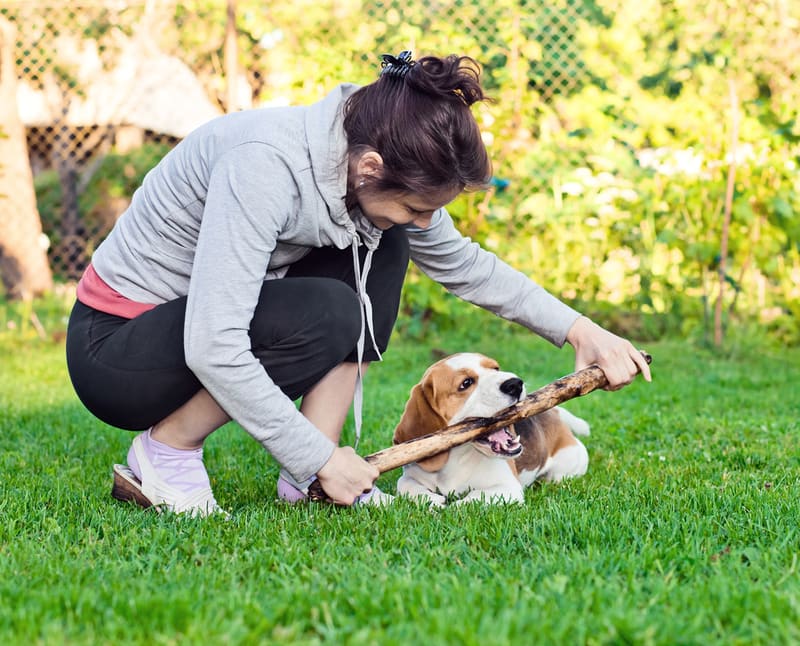Every dog owner wants to make sure that their dog is safe – and often, that can mean sacrificing things that you want to have, such as expensive upholstery or delicate items on display in your living room. Thankfully, you don’t need to give up on having a beautiful front or back yard just because of your dog; instead, you can practice dog-safe gardening to make your landscaping enjoyable for both you and your pet. Here are a few tips for dog-safe gardening:
1. Pick the right plants before gardening
Some plants are poisonous for dogs, so make sure that you are keeping this in mind when choosing what to include in your garden. Avoid anything with tannin, such as almond or walnut trees, or trees with toxic bark, such as cherry. Some other common and highly toxic plants include oleander, yew, sweet pea, and lily of the valley. Instead, consider some dog-friendly plants such as California lilac, echinacea, geranium and lambs ears. If you want to grow plants in the nightshade family, including eggplant, tomato, and potato, be sure to construct a barrier around them as they can be toxic to dogs as well.
2. Protect your landscaping
Make sure that you take the proper precautions to protect the plants in your garden from the curious paws and snout of your dog; for example, plant in raised beds, and teach your dog to stay away from that area. Create a “patrolling area” along your fence lines and the border of your yard that doesn’t have any plants, as dogs will naturally walk along this line as a matter of instinct. You can also create a special digging pit in order to focus your dog’s energy on digging somewhere other than in your flower beds!
3. Create a safe environment
Make sure that you take care of large hazards in your yard that could harm your dog, such as falling branches, by hiring an Auckland arborist for regular tree pruning services. This ensures that you remove the threat before it has a chance to harm your dog, and can provide you with some valuable tree services to keep your trees healthy as well. Also make sure to avoid using herbicides or pesticides, such as toxic snail bait containing the chemical metaldehyde, to keep your dog safe in case it does end up eating some of your plants.

